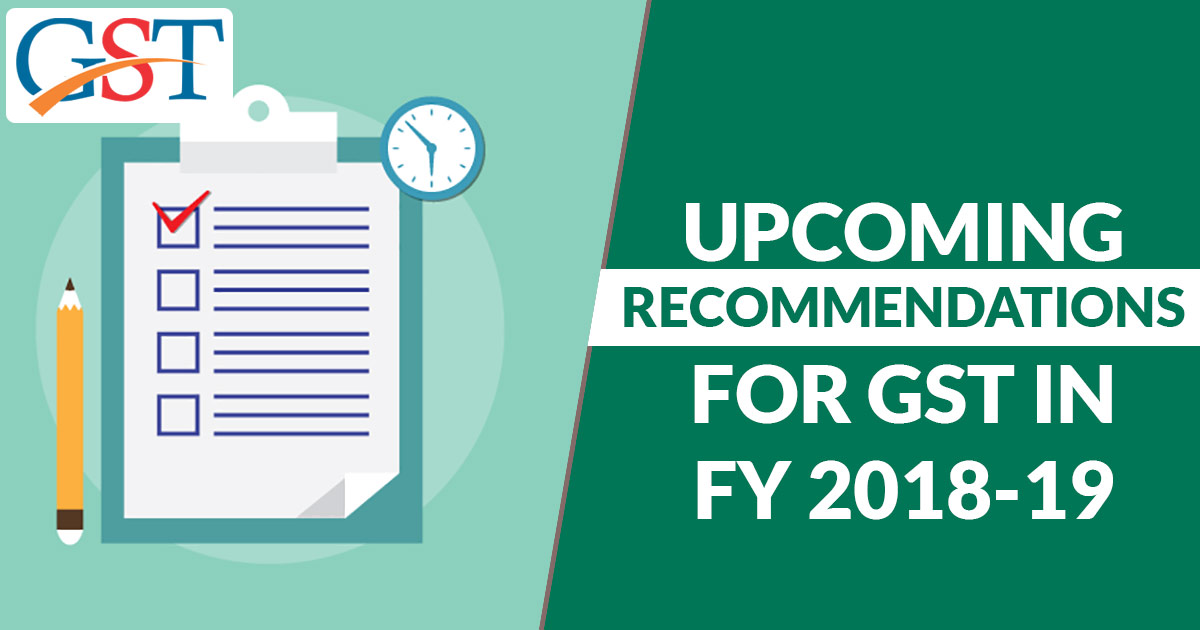The goods and services tax is a groundbreaking indirect tax regime appeared in the history of Indian economy and politics. There were mixed expectations as well as criticism on the topic due to the extreme compliance requirements of this new tax scheme.
GST council and government came to hand to hand in resolving all the issues at least immediately through long term and medium term discussions. Now as the GST has completed its first year, there are challenges still for the stakeholders and policymakers.
Recommendations For GST in FY 2018-19:
There are certain recommendations under GST in FY 2018-19 of its journey which is equally important for its survival under the pressure from all the sides i.e. the government, industries and the final consumers.
Establish Centralized AAR
Recently, the government, as well as the industries, faced a contradictory decision ruled out by the Authority for an advance ruling. The divergent decision came from the Maharashtra and Karnataka AAR leading to question of a centralised AAR. ALong with it, the appellate authority for AAR rulings is also under concern. A centralised appellate authority will help in cases of amendments required to be done under the GST laws.
Simplification of GST Return Filing Process
There is an immediate requirement of a simple mechanism of GST return filing and invoice matching process which would further make a business detailing much smoother. Both the provisions were included in the GST law, but still not implemented making them vulnerable to scrappage.
Central Authority for Registration
The business entities and the corporates were confused and tensed due to the registration process while getting registered vertical wise. The already registered entities were asked for new registration which made a different audits scenario over these businesses. So it is a need of the hour for a central authority to cross check all the registration and make a way for already established entities for vertical registration and not a new registration.
Bring Petrol/Diesel Under GST
According to the reports, there are lesser chances of international fluctuation to affect the prices of Indian fuel prices, as the government normally state the fact of international pricing revision for justifying the price hike here in India. So it is required that the fuels must be included under the GST for a transparent and equal behaviour with the consumers, is a major purchaser of petrol diesel across the country.
Recommended: What if Petrol and Diesel Come Under Goods and Services Tax India?









